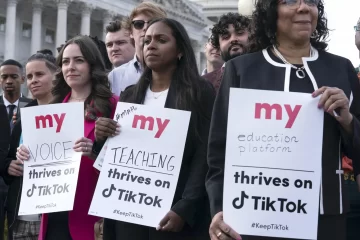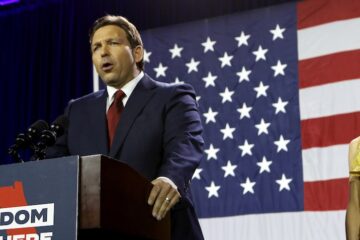On October 2, journalist Jamal Khashoggi entered the Saudi Arabian consulate in Istanbul to complete paperwork for a marriage license. He did not come out. The Washington Post correspondent was allegedly interrogated, assassinated, cut apart with a bone saw under the auspice of a national autopsy expert, dismembered, then placed into suitcases rolled out of the diplomatic complex and smuggled onto Saudi private planes—an affair fervently denied by Riyadh officials. The world in turn has reacted in shock, disgust and turmoil over alleged involvement by the Saudi monarchy and instruction from the Saudi Crowned Prince, Muhammad Bin Salman (MBS). Khashoggi’s murder has introduced a controversy into the folds of the US-Saudi relationship, human rights action, and the trajectory of the international liberal order.
While the affair has compelled many to reassess the US-Saudi relationship, few realistic policy proposals have been made. Some analysts have proposed diplomatic slaps on the wrist, direct economic sanctions, or even the termination of the alliance itself—decisions that do not reflect strategic thinking and consideration of Saudi Arabia’s role in the international arenas of defence, economics, and security. The US’ policymaking toolbox includes far more than just speeches and sanctions, and should be realistically reviewed before any pursuit of action.
The Trouble With Economic Sanctions:
If the case of Iran has demonstrated anything, sanctions often do not benefit American foreign policy objectives—particularly when aimed at a country that possesses over eighteen percent of proven global oil reserves and supports a $46 billion trade relationship with the US, of which Washington received a $5 billion surplus and 165,000 jobs. As policymakers and analysts once again flirt with the idea of economic sanctions, it is useful to assess the diplomatic face-off between Canada and Saudi Arabia as an example of why the US policymakers should proceed with caution. In 2017, the Saudis froze all trade and investment ties with Canada after Ottawa called for Saudi Arabia to release of a civil rights advocate, Samar Badawi; the kingdom cited “interference” with Saudi domestic affairs and impended an estimated $50 million market loss in vehicle and transport equipment exports and $93 million in agri-food exports. Any expectation that the White House—especially this White House—would wage a gambling campaign of sanctions that carries the potential to hurt American workers is a fools errand in policy formulation.
Saudi officials have already cautioned the international community of their response to economic sanctions and to Trump’s warning of “severe punishment,” noting that they would “retaliate” with “greater action.” It’s likely that if the US implemented direct economic sanctions on the Saudi Arabian economy, global oil prices would spike an estimated $200 per barrel. Saudi Arabia is home to eighteen percent of the world’s oil reserves, producing over 10.488 million crude barrels per day in June 2018, and would predictably cut or slow-walk production in the face of sanctions. A Saudi reaction would also arrive at a time when economic sanctions will hit Tehran, starting 5 November, which will also produce a shortage of oil supply and temporary high prices in the energy market. While sanctions will not repeat the devastating effects of the 1973 Oil Embargo, a Saudi Arabian response could send the global market into a short-term spiral.
UN Investigation
Many reports out of Istanbul have noted Saudi Arabian official’s denial of Turkish journalists and government investigators into their diplomatic facilities, prompting concern for an ethical investigation. One of the most pressing issues in the Khashoggi affair has been lack of independent, objective investigation. This should be a first venue for policymakers to use punitive action.
Looking outside Washington, policymakers should remember that international institutions can be vitally useful to pressure foreign actors. Some analysts and human rights advocates have already begun pressuring Turkey to appeal to Secretary General Antonio Guterres and the United Nations Human Rights Council (UNHRC) and press for an accountable, transparent investigation into the extrajudicial killing. There has also been the proposal for a high-level, UN-appointed panel that would independently identify guilty parties, as well as an independent autopsy upon Khashoggi’s body, which is still missing. This process, however, requires Saudi Arabia to waive its diplomatic protections to the UN, and grant official access to local Turkish police officials and UN investigators over audio, visual, and physical evidence—a task that will be difficult to accomplish with MBS.
The Magnitsky Act and Individual Sanctions
A softer alternative to economic sanctions is the use of diplomatic and individual sanctions, by means of Congressional authorization. There is much utility in diplomatic and individual sanctions: they do not seek to undermine the Saudi energy industry and instead can be used to target those implicated with the Khashoggi case, among the officials that authorised it. Individual sanctions can include visa denials, seizure of US-based assets, and a spot on the Department of Treasury’s Specially Designated Nationals and Blocked Persons List (SDN). If Washington were to choose individual sanctions as a prime method of punishment, the fifteen-member “hit squad” deployed to Istanbul to interrogate and kill Khashoggi, should be first on the short-list.
The ideal tool that Washington should look to is Congressional invocation of the Global Magnitsky Human Rights Accountability Act of 2016. Section 3, sub clause D requires the administration to investigate and determine foreigners or entities “complicit” with an “extrajudicial killings, torture, or other gross violations of internationally recognised human rights,” as well as governmental officials that perpetuate acts of “significant corruption,” within the span of 120 days after congressional request. The White House is required to report to Congress on its findings and a determination whether to pursue individual sanctions upon those found guilty. The utility of a White House investigation, however, is under speculation due to a perceived bias shared between the President and MBS. However, Congress has an alternative if the White House cannot perform an accountable investigation: pursuing individual sanctions themselves. While controversial, it can be accomplished: Congress independently pursued sanctions on a series Russian businessmen in the face of White House objection, during the summer of 2017.
Washington could also consider the option of expelling a limited number of Saudi Arabian diplomats and small consulates stationed in the US. A similar action was made in March against Russia in the wake of the Salisbury Novichok attack, with the US expelling 60 Russian diplomats and the closure of the Seattle Russian consulate. Many in the international community joined the US, with eighteen countries reducing diplomatic ties and placing pressure on the Kremlin. The Khashoggi affair has already garnered significant international concern and diplomatic expulsion would likely be effective once an investigation is conducted. Alternatively, the US could explore the possibility of calling to withdraw Prince Khalid bin Salman bin Abdulaziz, the Saudi ambassador to the US and younger brother of MBS.

Regarding the Arms Deal
In 2017, the Trump administration signed the largest arms deal in defensive history with Saudi Arabia. It was worth $110 billion. Saudi Arabia is the world’s second arms importer, with 61 percent of its demands being met by US armaments. The arms deal has brought a wave of technological production and employment to American companies such as General Electric, Boeing, and Lockheed Martin. It is seen as a vital cornerstone of the Trump administration’s policy goals: American foreign relations serving American interests, before all else.
The Khashoggi affair has invited speculation upon the 2017 arms deal, with many calling for its demise and cancellation. The deal was fashioned to aid and modernize the Saudi Arabian military to counter terrorist factions along its Levantine frontier, restrain Iranian influence, and support American missions such as Operation Inherent Resolve (OIR) and Operation Enduring Freedom (OEF). However, the arms deal provoked controversy with its role in the Saudi offensive against Yemen’s Houthi rebels—an airstrike campaign that has killed an estimated 10,000 civilians, half of which under the age of 18, and produced one of the greatest humanitarian crises in the world. While the arms deal can be perceived as an extension of Saudi Arabian human rights abuses, advocates for the deal’s demise can not and will not be accomplished under the current administration, and would likely turn the Saudi defence ministry’s attention towards Russian and Chinese partnership.
There is still influence that Washington can yield against Saudi Arabia’s military activity, through temporary suspension of the arms deal or uninitiated, potential clauses called “memorandums of intent” that the two countries have discussed after the deal’s signing. Data of military sales under the 2017 fiscal year reveals that many items on the Arms Deal list did not even contain explicit delivery dates or were not scheduled until 2022. Thus far, the $110 billion deal has only resulted in $14.5 billion-worth sales of tanks, fighter jets, combat ships, and THAAD missile defense systems from Saudi Arabia. The delay in Saudi Arabian purchases presents an opportunity for policymakers to place a temporary freeze on arms sales, to be resumed after a thorough independent investigation, without hurting American workers.
The Effect of Corporate Backlash
While policy has been slow to respond, there has been significant backlash against the Khashoggi affair in the business sector. Saudi Arabia hosted the World Economic Forum’s (WEF) Future’s Investment Initiative in Riyadh, popularly dubbed “Davos in the Desert,” for three days last week, but will expect reduced attendance. The Khashoggi affair has prompted the US Secretary of the Treasury, Steven Mnuchin, UK International Trade Secretary Liam Fox, French and Dutch finance ministers, Bruno le Maire and Wopke Hoekstra, World Bank President Jim Yong Kim, and even the International Monetary Fund’s chief, Christine Lagarde, to pull out of the conference. Heads of major companies, such as JP Morgan, Blackrock Inc., Uber Technologies Inc. Google cloud, AOL, London Stock Exchange, Ford, CNN, and Bloomberg News, have followed suit with abandoning their invitations. However, some of these companies have used their withdrawal for the purpose of public relations and still sent company representatives.
The Saudi stock market has already suffered, falling by seven percent on 14 October. Foreign investors sold off 4.01 billion Saudi riyals, buying only 991.3 million within a week. The affair has also impacted the global market, sending foreign investors and banking partnerships into a state of uncertainty. If Washington denies a reaction to the Khashoggi affair, it will be up to foreign investors and major businesses to place effective pressure on Riyadh.

The monarchy has demonstrated a consistent pattern of intolerance towards critics of the regime, independently-minded businessmen, and even fellow royal family members. Over the past summer, MBS constructed a repertoire for cracking down on dissent: the Crown Prince detained over eleven royal family members and held them hostage in the Riyadh Ritz Carlton, arrested female activists for speaking out against Vision 2030 reforms, executed 47 dissidents within one day, and allegedly kidnapped the Prime Minister of Lebanon, Saad al-Hariri, and forced the statesmen to resign while in Riyadh—all while perpetuating a humanitarian crisis in Yemen. Throughout these incidents, the US and its partners have rarely interjected with concern or retribution. However, it is not too late. The US can acknowledge this pattern of abuses into its response to the Khashoggi case and cite it in a larger narrative encouraging respect for universal human rights.
The assassination of Khashoggi has created chaos and uncertainty in the US-Saudi Arabian relationship. Realism should serve as the driving force of debate and decision-making towards Riyadh, instead of ambiguous speculation about the state of American alliances and moral efficacy. Policymakers will quickly learn that sanctions and slaps on the wrist directly from White House policy may not be the effective answer, and would usher financial instability as consequence. Instead, Washington should pivot its efforts towards diplomatic, congressional, and investment channels that target the Saudi monarchy, rather than US objectives in the region.


